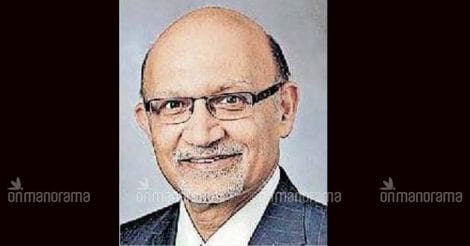Kerala, which lies between the Middle East and Southeast Asian nations including Singapore and Malaysia, should aim to expand its business relations with these markets and make Kochi a transit hub for both air and marine transport, says Arun M Kumar, the head of consultancy firm KPMG in India. Kumar, in Kerala to attend an investment meet, doesn’t see the Gulf job market posing any challenges to Keralites. A native of Thiruvananthapuram, Kumar is the first CEO and chairman of KPMG in India. He was the assistant secretary of commerce for global markets and director-general of the US Commercial Service in the Obama administration. A member of the state digital advisory committee, he has authored a book on Kerala’s economy. The signs for the state are encouraging when you look at the developments in the past decade, he says. Edited excerpts:
Where is Kerala headed to?
When you look at the developments in the past 10 years (2007-2017), the indications are very encouraging. Kerala is among the top in India on per-capita income … it is 50 per cent more than the national average. In this period, Kerala’s exports have expanded fourfold, compared with 2.7 times nationally.
Factory output increased 2.7 times here, faster than the country’s 2.1 times jump. Tourist arrivals rose 2.4 times, compared with the national average of 1.5 times. Kerala’s development is not just in social indicators such as literacy and infant mortality rates.
But Kerala isn’t getting investment?
Kerala must rebrand itself as an investment-friendly state. Several surveys have found corruption to be the least in Kerala. That doesn’t mean there is no corruption, but it is less compared with other state, especially top-level corruption. But hartals and strikes should stop. Kerala’s rank in ease of doing business must improve.
More than that, Kerala should exploit its geographical advantage. The state has close ties with the Gulf and Southeast Asian countries. Kerala should build employment and business relations with countries such as Singapore, Indonesia, Malaysia and Sri Lanka. Government should promote bilateral visits. Kerala can become a transit hub between the two geographies (the Middle East and Southeast Asia) — for both air and sea connectivity. Kochi can become a transit hub for flights. Improving connectivity will boost tourism. The Kochi Metro, Nedumbassery airport and tourist centers can be utilized for this. Technopark and Infopark can be two major centers under this project.
But Kerala is still not among the top 10 for tourism in India…
Just about 10 lakh foreign tourists visit Kerala. That must be increased by 10 times. Policies should be formulated for that. If the air and sea transit hub plans are materialized, tourism will grow on its own here. An example is Dubai. Kerala has good scope for medical tourism as well.
Will falling oil prices affect the employment opportunity of Keralites in the Gulf?
I don’t think so. My observation is that the employment opportunity for Malayalis in the Gulf will not shrink. Even if the Gulf countries move away from oil-based economies, they will still need people for new types of jobs. Keralites can utilize that. They need to gain new skills. The nature of jobs may change, but there will still be opportunities.
KPMG played a key part in the implementation of GST…
No other country has such a complicated economy — so many states, products and a parallel economy. So, it is natural to have teething problems. The aim was to implement a system that suited for us. Problems can be addressed.
Is there a slowdown?
The business leaders I talk to are all optimistic. Foreign investment into India has only increased. The slowdown is in local investment. The government is investing in infrastructure. When banks’ bad loan problems are addressed, and they have enough capital, more loans will become available. That will boost investment. Slowdown will become a thing of the past.
What are KPMG’s plans for Kerala?
We had started with just two people. Now there are 1,200 people working in Kerala. We at KPMG want Kerala to become a part of our expansion. Accordingly, we will increase our operations here.
Read: Latest Business news | Softbank investment in Uber: ' no final agreement' yet

























 Arun M Kumar, the Malayalam-speaking India head of global consultancy firm KPMG, talks to Onmanorama.
Arun M Kumar, the Malayalam-speaking India head of global consultancy firm KPMG, talks to Onmanorama.